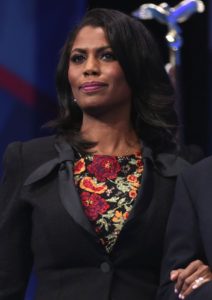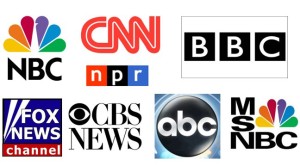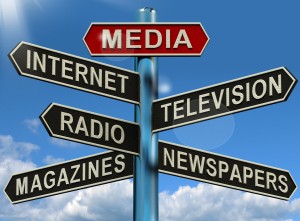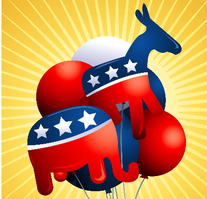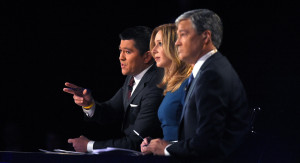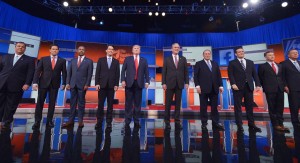
I awoke this morning and a curious thought popped into my noggin about last night’s Republican presidential primary debate … so I thought I’d share it here.
What if Amarillo’s hot topic of the day — the upcoming citywide referendum on a proposed multipurpose event venue — had been the subject of a similar debate format between advocates on both sides of this highly controversial issue?
Suppose, then, that the two sides had gathered their forces, sat them in an auditorium, say, at the Civic Center or the Globe-News Center for the Performing Arts. And then imagine how they might try to out-cheer, out-shout and out-jeer each other whenever someone made a point they either liked or loathed.
You know, these kinds of things rattle around in my head from time to time. In this instance, they make me glad we haven’t resorted to the carnival atmosphere that has overtaken the Republican and Democratic presidential debates as they’ve been staged in front of the nation.
The GOP has staged three of these sideshows; the Democrats just one, so far.
The MPEV debates — and there’ve been a couple of them broadcast on Panhandle PBS — have been models of decorum and relatively good manners.
(Disclosure time: I am a freelance blogger for Panhandle PBS, so — as the Texas saying goes — I’ve got a dog in that fight.)
The second of those encounters will air tonight at 7 on Panhandle PBS. It features Amarillo lawyer Vince Nowak speaking against the MPEV and former Amarillo College President Paul Matney arguing in favor of it. This past week, the contestants were Amarillo City Councilmen Brian Eades (pro-MPEV) and Randy Burkett (anti-MPEV) making their respective cases regarding the $32 million sports and entertainment venue planned for construction in downtown Amarillo, across the street from City Hall.
Check both debates out here.
Were there catcalls? Cheers? Jeers? Zingers? None of that. It was just Panhandle PBS content producer Karen Welch grilling the contestants on why they favor and/or oppose the measure. There were differences of opinion, but on the whole the adversaries were courteous and respectful of each other’s time.
One can learn a lot when one is not distracted by crowd noise, glitz and show-biz bling.
Both sides have their share of passionate supporters. I prefer, though, to gauge the merits of an argument on the points made by the principals rather than relying on applause meters.
